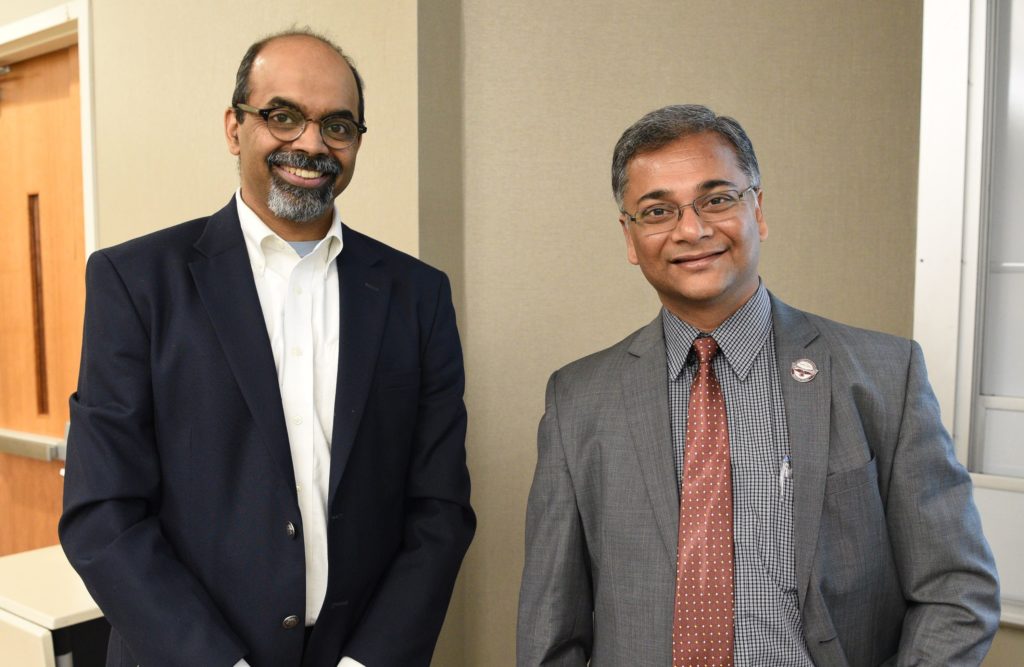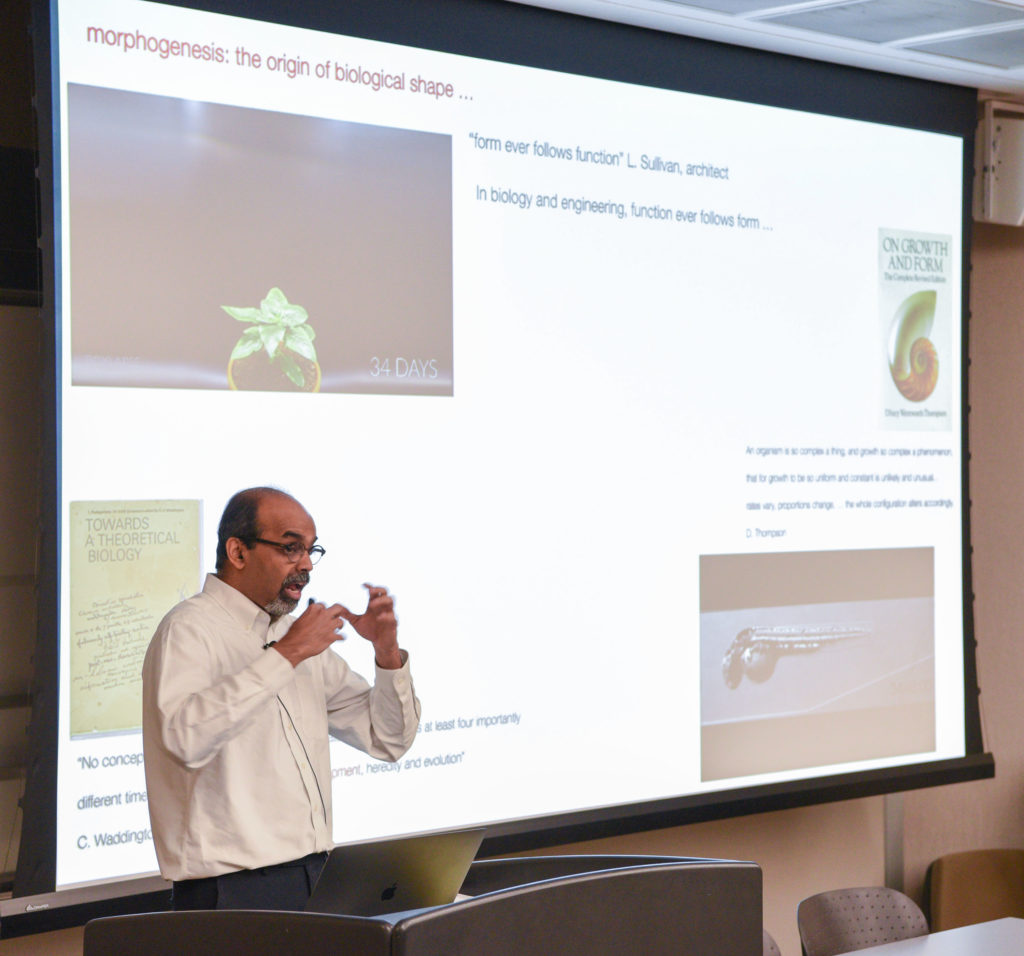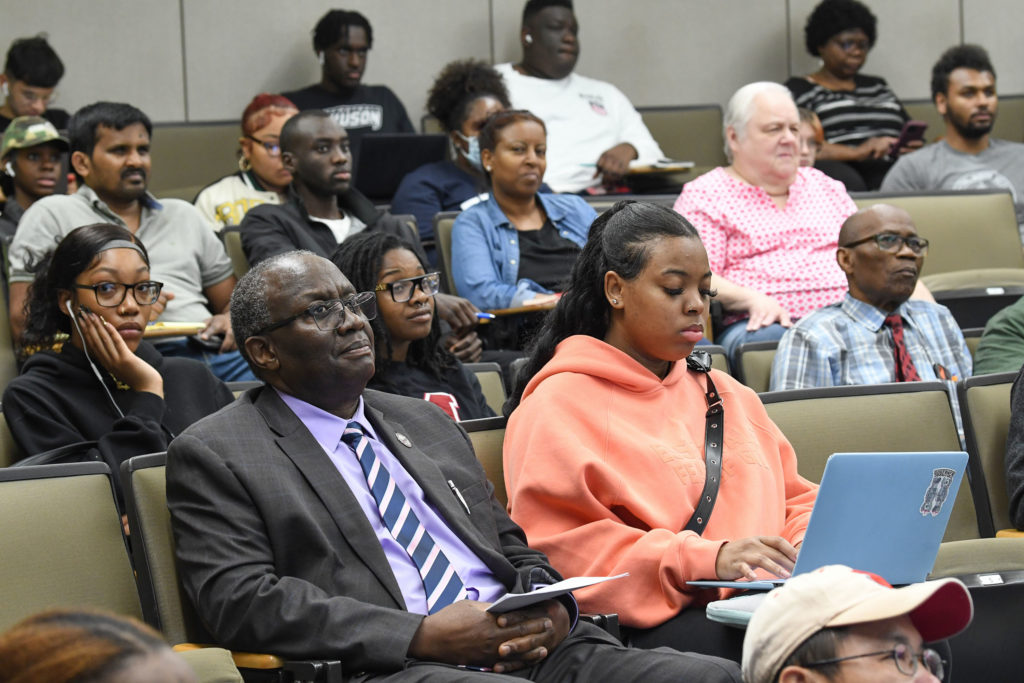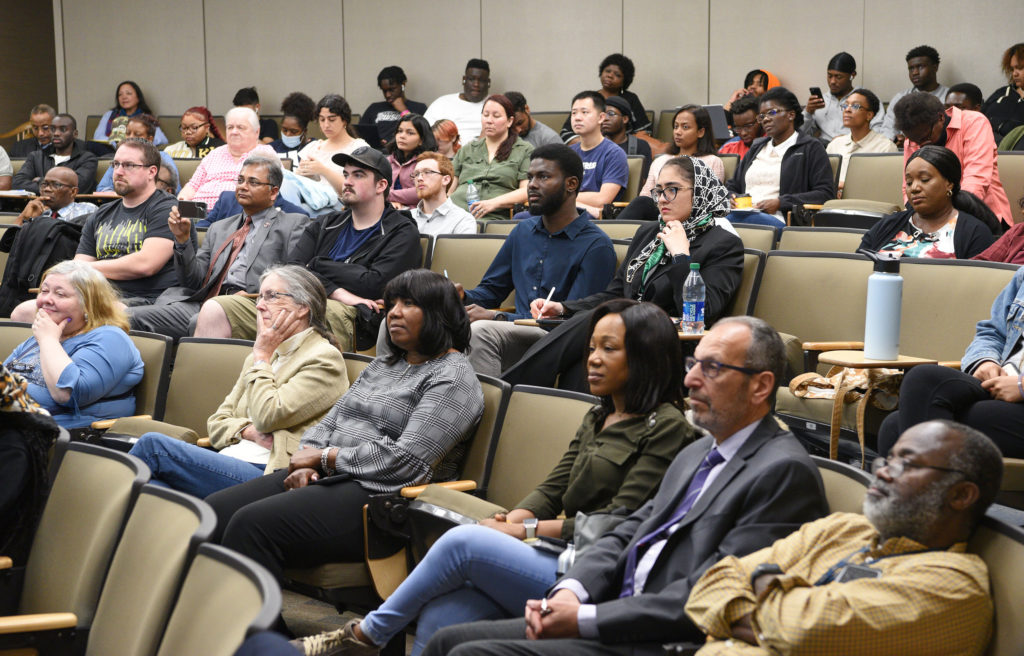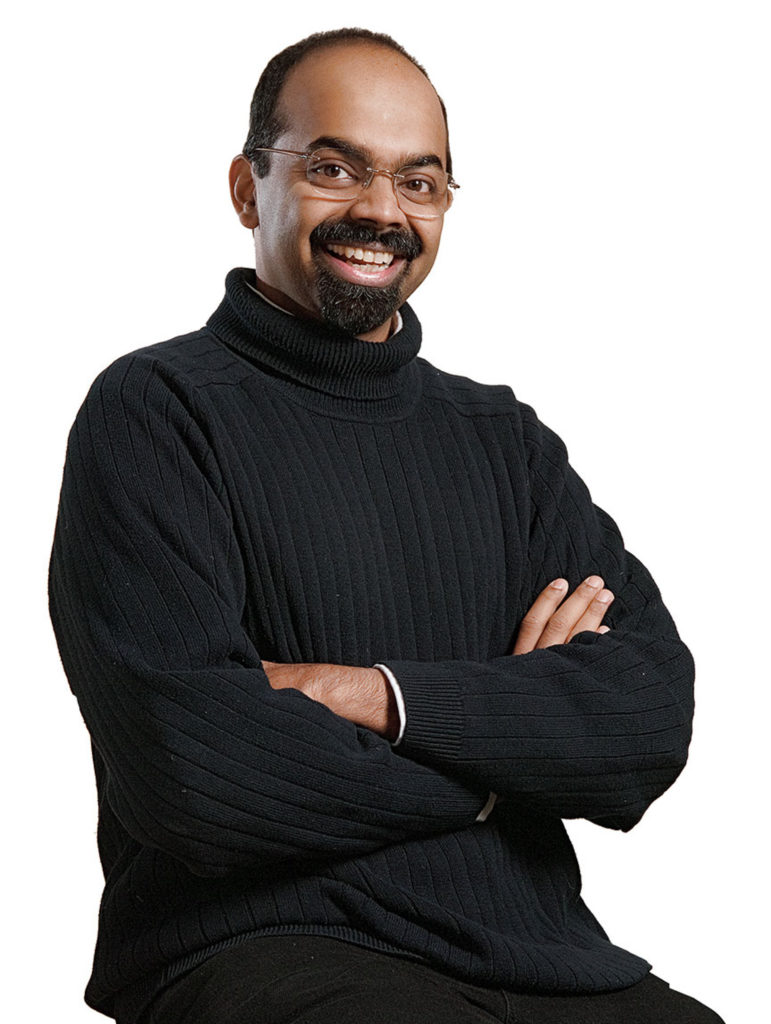
Could Aladdin’s carpet fly in real life? Can cellphones be used for medical diagnosis? At first, many experiences seem magical, for they are new, surprising and mysterious. Over time, magic and mystery give way to rational explanations expressed in mathematics.
Attendees at an April 27 seminar hosted by UMES’ Center for Student Excellence, and School of Agricultural and Natural Sciences learned about curiosity-driven research. Dr. L. Mahadevan (at right) the Lola England de Valpine Professor of Applied Mathematics, Organismic and Evolutionary Biology and Physics at Harvard University said he chooses what problems to look at by “approaching every problem with the curiosity of a child.”
He believes one does not need to be a mathematician or scientist to appreciate the mathematical properties of everyday things.
“Mathematics is a way to understand the world using metaphors,” Mahadevan said.
Mahadevan shared insight for revealing the underlying science and mathematics of objects, systems and processes in nature. Among other things, he addressed movement in biology, which takes coordination of brain, body and environment. For instance, he discussed similarities between how a fish swims and how a flag flaps in the wind.
“When you see similarities among things in nature, it is never a coincidence,” he said.
Mahadevan’s interests center around using experiments, theory and computation to study motion and matter at the human scale.
He uses mathematics and physics to explain everyday phenomena from how the body grows (morphogenesis) to how worms crawl, snakes undulate and fish swim (development of coordinated locomotion).
Mahadevan was born in India, and following his undergraduate studies at the Indian Institute of Technology-Madras, obtained his doctorate at Stanford University in 1995. After postdoctoral stints at Urbana and Chicago, he started his independent career at the Massachusetts Institute of Technology and was tenured. He moved across the pond in 2001 and was the inaugural Schlumberger chair in Complex Physical Systems at the University of Cambridge in England and a professorial fellow at Trinity College. He came to Harvard University in 2003.
Laura Sileo, director of agricultural communications and marketing specialist, University of Maryland Eastern Shore, School of Agricultural and Natural Sciences, UMES Extension, 410-651-6084, lcsileo@umes.edu
Photos by Todd Dudek, UMES Agricultural Communications, tdudek@umes.edu.

